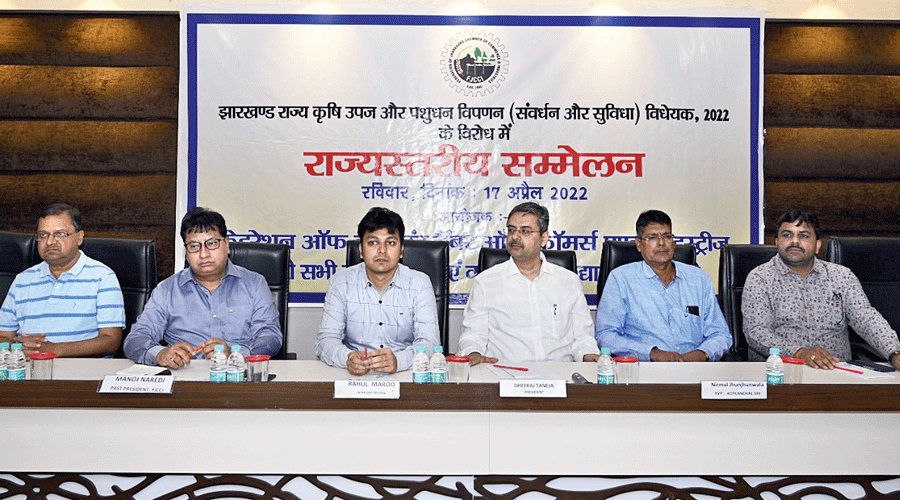The Federation of Jharkhand Chamber of Commerce and industries, the apex trade body of the state, has demanded the withdrawal of the Jharkhand State Agricultural Produce and Livestock Marketing Bill 2022 that was passed in the state Assembly last month and now awaiting approval of the governor.
“The decision was taken at a special meeting attended by over 200 representatives of various district chambers and those dealing in food grains or running rice mills and food processing units from across the state,” informed FJCCI president Dheeraj Taneja.
“We would first protest against the bill and demand its withdrawal by different means from tomorrow and also meanwhile request the chief minister to withdraw it,” he informed, adding they planned to paralyse the food grain business in the state if no action was initiated by May 15.
The bill aims at giving the farmers a chance to get the right price for agricultural produce and livestock by directly selling those at private markets and also through digital platforms.
The state government would give licence for setting up such private markets where the farmers can directly sell their produce and increase their income.
Another feature of the bill is that the farmers do not require to pay anything for selling their agricultural produce and livestock at those markets while the buyers have to pay taxes. Those buying perishable items would require to pay one per cent tax while the tax for non-perishable items would be two per cent.
“If those dealing in food grains have to pay two per cent tax for buying those, they have to sell those at a higher price for maintaining a margin which will be very difficult in competitive markets outside the state,” the FJCCI president said when asked why they were opposing the bill.
As a result, the businessmen buying food grains would ask the farmers to sell their produce at a lower price so that the former can maintain their usual profit margin, he further explained, adding the farmers would also have to agree to do so for disposing of their produce.
“Instead of boosting the farmers’ income, the bill will actually have an adverse effect,” Taneja said.
“We wonder why the state government brought such a bill when a similar provision that was in force in the state earlier was withdrawn in 2015,” exclaimed Amit Maheswari, FJCCI regional vice-president from Gumla.
“That withdrawal had a good effect because the number of rice mills in the state went up from earlier 40 to about 200 at present,” said another chamber leader Arun Budhia, adding the activities of rice mills would be retarded if they have to buy paddy by paying 2 per cent extra as tax and that will have a ripple effect in the market.
“Withdrawal of the bill would thus benefit both the farmers as well as the buyers or business community,” FJCCI president Taneja argued.










